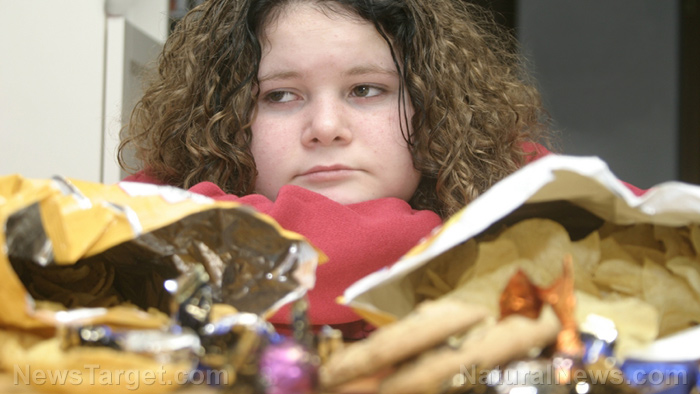Yes, your child is seriously fat, but nurses are ordered to swap the words “overweight and obese” for positive, friendly terminology to avoid triggering snowflake parents
10/30/2017 / By Isabelle Z.
Body weights are climbing around the world, with countries like the U.S. and the U.K. seeing skyrocketing rates of obesity. It’s not just adults who are getting fatter; more and more children are also packing on the pounds. Now, Public Health England (PHE) is urging healthcare professionals to avoid using the term “obese” when discussing children’s weight and advising parents to do the same. Instead, they’ve been told they should stick to friendlier terminology like working on a “healthier weight status” or a “healthier lifestyle.”
In a 14-page document called “Let’s Talk About Weight”, healthcare professionals are told that parents in general are not very accepting of terms like “obese” when talking about their children’s weight.
According to a national survey, most American parents can’t tell their kids are obese. While nearly one third of all American children are considered obese or overweight, just 15 percent of the parents surveyed considered their children to be any degree of overweight. This is why healthcare professionals need to tell them in no uncertain terms that it’s time to do something about their child’s weight.
Tell it like it is
England’s Chief Medical Officer Dame Sally Davies expressed concerns that people have started to normalize obesity and that the national understanding of what is considered healthy has been lost. She added that “obese” is a physical description that should not be perceived as offensive.
Honesty will go a lot further in helping overweight kids
The gentler approach might come from a place of care and concern, but it doesn’t do kids any favor in the long run to pretend as though they don’t have a serious health problem that puts them at risk of even more health problems further down the line. Of course, it would be incredibly hurtful to mock a child or call them unkind names referring to their weight, but what is so wrong about acknowledging that a kid is at an unhealthy weight? Telling someone they are overweight, regardless of their age, is stating a fact about their health the same way telling them they have high cholesterol or high blood sugar is.
The concern about parents’ feelings is also a bit short-sighted as some of the blame for a child’s weight can often be pinned on the parents. It’s important to be honest with them about the role they played in creating the situation, if any, and more importantly, how big of an influence they can be in helping their child lose weight.
It’s the parents who will need to encourage these overweight kids to exercise and get proper sleep. The parents are also the ones buying the groceries, and they’ll need to make a better effort to stock their fridge and pantry with healthy choices, prepare balanced meals, and serve them in appropriate portions. In fact, telling parents frankly that their child is obese is the best way of helping these kids shed those pounds and regain control over their health. Many of these parents may themselves also be obese, so losing weight could become a family effort that benefits everyone.
It’s important for parents to know their children are at risk of problems like diabetes and even cancer, with a study showing that people who were obese as children are 50 percent more likely to go on to develop certain types of cancer in adulthood. Other problems overweight children are more vulnerable to include depression, behavioral problems, developmental delays, ADHD, headaches, allergies, muscular and bone problems, learning disabilities, and asthma.
Rather than trying to sugarcoat it, health professionals owe it to children and their parents to be honest and direct about their weight problems. They need to explain very clearly that they have a higher risk of disease and offer helpful and actionable advice for making positive changes. This will help children far more than dancing around the problem with euphemisms. Childhood is when most people learn the lifestyle habits that will stick with them throughout their lifetime, so getting it right now will have a tremendous influence on their future well-being.
Sources include:
Tagged Under: childhood obesity, healthy development, healthy weight, honesty, obesity, overweight children, parenting, political correctness, politically correct, slender, Snowflakes, weight loss, weight problems




















